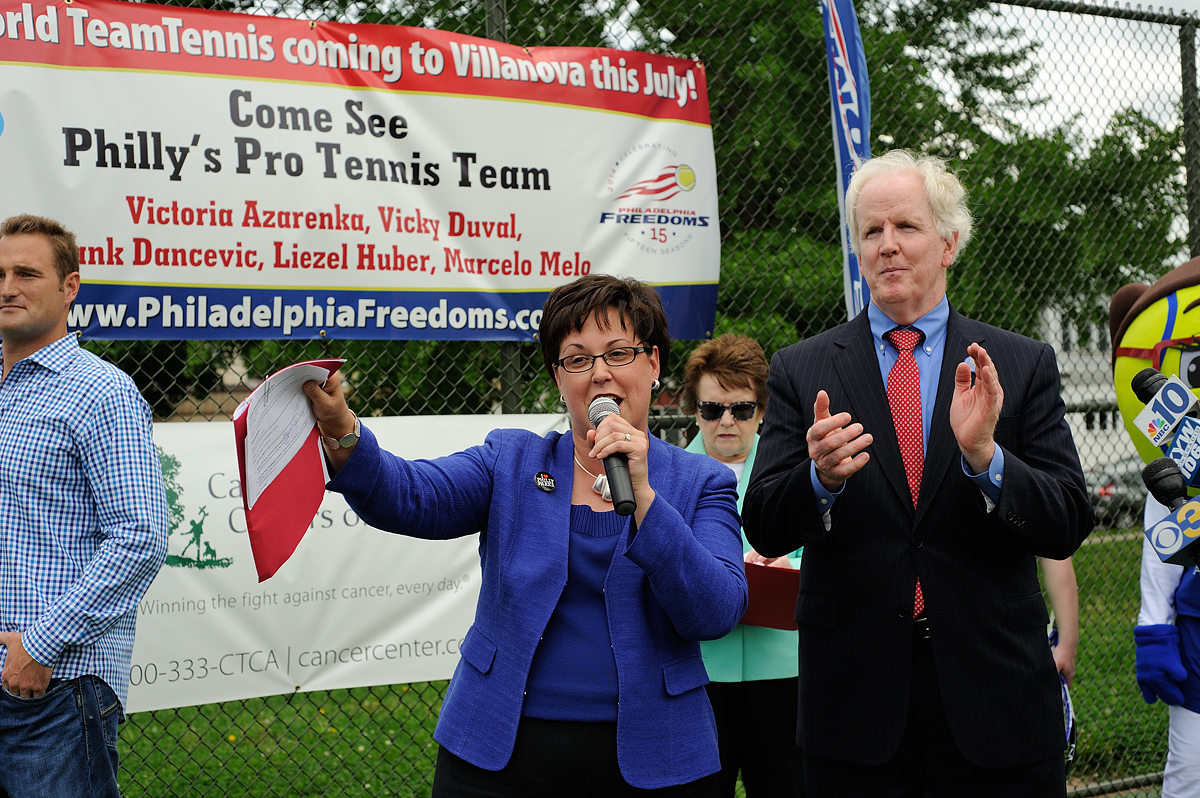
Knight Cities podcast: Philly’s Fairmount Park Conservancy shows value of public-private partnerships
Sign up for Podcast Alerts Subscribe
With city finances squeezed, the call for public-private partnerships is increasing. But even in the best of circumstances, they can be tricky to manage.
Kathryn Ott Lovell is responsible for one of the nation’s largest non-commercial public-private partnerships. She is executive director of the Fairmount Park Conservancy, an independent nonprofit organization that champions Philadelphia’s vast park system, where she orchestrates the daily dance of balancing public and private concerns and responsibilities to produce quality parks for citizens.
Kathryn is also responsible for managing the collaboration of five civic assets in Philadelphia—neighborhood parks, a library, two trails and a Discovery Center—as part of a recent grant from the William Penn Foundation and Knight Foundation to reimagine Philadelphia’s civic commons.
Here are five things you should know from my conversation with Kathryn:
1. City park conservancies are growing rapidly across the country in terms of the financial support they provide for public parks and the number of people they serve.
2. The city owns the parks, and the conservancy supports the parks. A conservancy cannot and should not replace the city but must work hand in hand to leverage the resources the city has.
3. Building a level of trust is the biggest challenge in a public-private partnership. The private partner must acknowledge what the city is able to do and offer credit to the city and its staff. Likewise, the city must acknowledge and welcome the supplemental talent and resources the private partner brings.
4. Conservancies, as park advocates, ought to be bolder in encouraging more tax dollars to go to parks and libraries. They are not thinking creatively or innovatively enough on how more revenue can be generated for these civic assets.
5. The people who develop and manage public spaces, such as parks and libraries, work in isolation from one another. The new initiative in Philadelphia, “Reimagining the Civic Commons,” gives leaders of these civic assets the vehicle to work more closely together, to leverage their knowledge base and ideas, to think of new ways to lift up public spaces and work more collaboratively and – ultimately – to shift the conversation with city leaders to recognize that we are stronger together. By connecting our assets, we are connecting our constituency bases and that will become a significant civic force over time.
Listen to my conversation with Kathryn here. And sign up for the “Knight Cities” newsletter to get alerts as soon as new conversations are posted.
Look for new “Knight Cities” content posted every Wednesday. You can follow us on Twitter at #knightcities or @knightfdn. And if you have ideas for people you’d like to hear from, please email me.
Carol Coletta is vice president of community and national initiatives at Knight Foundation. Follow her on Twitter @ccoletta.
Recent Content
-
Communitiesarticle ·
-
Communitiesarticle ·
-
Communitiesarticle ·


